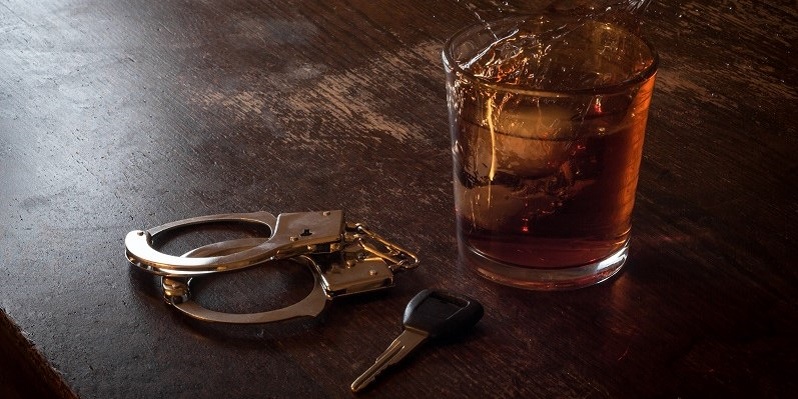Dallas DUI Defense Lawyer: The Difference Between DUI vs DWI Under Texas Laws
A Dallas DUI defense lawyer can help you distinguish between a DUI and a DWI. In Texas, there is a distinction between DWI and DUI. The words “DUI” and “DWI” are frequently used interchangeably. A DUI conviction can result in a fine that does not exceed $500 or 40 hours of community service, obligatory alcohol awareness seminars, and a license suspension of up to 60 days, among other consequences. DUI or DUIA
DUI convictions have serious consequences, and some can last for years. Even if you pay your penalties and satisfy your legal duties, your DUI conviction can still jeopardize your future possibilities and haunt you for years to come. Understanding how a DUI may affect you, your family, together with your future is a crucial first step in saving yourself from the adverse effects of this action.


Distinction Between DWI & DUI
You’ve probably heard of the words DUI and DWI. However, you may not completely comprehend how the two concepts are related and how they vary. To begin, “DUI” stands for “driving under the influence,” while “DWI” is for “driving while intoxicated.”
A DUI or DWI in Texas refers to someone operating a vehicle in a public space while inebriated, which indicates he or she lacks normal use of mental or physical abilities due to the use of alcohol or a narcotic. In Texas, the official meaning of this offense is “DWI,” while the terms “DUI” and “DWI” are frequently used interchangeably.
If a person under 21 uses a car while legally inebriated, he or she can be charged with DWI (has a .08 concentration of alcohol in their blood or breath or under the influence of drugs).
DUI Or DUIA
Under Texas law, however, if a person under the age of 21 is pulled over by the police and has any alcohol at all in his or her system, he or she could be charged with a “DUI” (or “DUIA,” which is an abbreviation meaning “Driving Under the Influence of Alcohol”). In Texas, this is the sole officially allowed usage of the phrase “DUI.”
A DUI is charged under the Texas Traffic Code and is only awarded to minors who violate the rules of the road (those under 21 years). Therefore, if a young person is caught driving with any level of alcohol in their system but is still under the legal limit, they may get charged with a drunk driving offense (blood alcohol content of .08). A DUI conviction can result in a fine that does not exceed $500, 40 hours of community service, obligatory alcohol awareness seminars, and a license suspension of up to 60 days, among other consequences. Please keep in mind that minors could still be charged with a DUI if they are found influenced by alcohol or drugs.
As a result, it is considered a significantly more serious violation under the Texas Penal Code than DWI. Someone could be charged with DWI if they have an.08 blood-alcohol level or greater, or are driving while intoxicated, as determined by the police. DWI punishments can be anything from significant fines and driver’s license suspension/revocation to jail time or prison term, depending on the facts of the case.
What Happens If You’re Arrested For Driving Intoxicated?


What Should You Do If You Are Arrested For Driving Intoxicated?
Getting arrested may be a terrifying experience for everyone. You’ll have an easier time getting through it if you follow the officers’ orders, remain courteous, and do your best to maintain your calm. Your first court appearance will be the following day, when you will meet with a court official who will set a court date for you and release you on your own recognizance.
Please keep in mind that if you are caught for DWI and you have an open alcohol container in your vehicle, you might face up to six days in jail.
What Are My Rights After Being Arrested For DWI In Texas?
A breathalyzer test is not mandatory in Texas, but you have the option to decline it. If you do, your driver’s license will be suspended for 180 days without notice if you violate the law. You have the option of having an attorney represent you during your court appearance. Getting legal representation as soon as possible after receiving a court date is a smart idea. Waiting until the last minute will limit your lawyer’s ability to thoroughly evaluate your case and prepare a compelling defense strategy on your behalf. The sooner your attorney can begin working on your case, the greater your prospects of avoiding a DWI conviction are.
Consequences Of DUI
The most common criminal violation in the US is driving under the influence (DUI). Many responsible drivers with otherwise spotless records have been caught for DUI and found themselves in a dizzying vortex from which they were unable to recover.
DUI convictions have serious consequences, and some can last for years. Most of us are aware of the immediate penalties, which include temporary driver’s license suspension, taxes, and fines, increased insurance rates, court-ordered community service, participation in drunk driving education programs, and even jail time.
Unfortunately, the long-term consequences of a DUI might be the most painful. Even if you pay your penalties and satisfy your legal duties, your DUI conviction can still jeopardize your future possibilities and haunt you for years to come. Understanding how a DUI may affect you, your family, together with your future is a crucial first step in saving yourself, your family, and your future, from the adverse effects of this action.
Even if you pay your penalties and satisfy your legal duties, your DUI conviction can still jeopardize your future possibilities and haunt you for years to come. (Consult good representation like you will find at The Medlin Law Firm).
The following are some long-term effects of receiving a DUI:
- Driver’s License Revocation
- Background Checks
- Employment
- Auto Insurance Rates
- Professional Relationships
Some Facts About Drunk Driving
- Those between 21 and 25
Young individuals between 21 and 25 are the most likely to be caught driving with the adverse influence of alcohol.
- Drunk drivers account for one-third 33% of all accidents.
Repeat offenders account for about 33%of all drunk driving convictions.
- $100 billion is a significant cash sum
Accidents involving alcohol cost the taxpayers more than $100 billion.
- Drunk Driving in Texas
Every nine hours and six minutes, someone in Texas is killed in a DUI-alcohol-related driving accident. Last year, 963 individuals were murdered and 2,114 were seriously wounded in Texas because someone opted to drive while inebriated.
Drinking and driving are completely avoidable and can have long-term physical, emotional, and financial effects. A DWI can not only injure or kill someone, but it can also be costly and generate legal complications. It might make it difficult to find or retain a job. It is disgusting and humiliating, and it may lead to a loss of trust and remorse. A DWI accident may ruin the lives of victims and survivors for the rest of their life.
There are several sober ride choices. To avoid driving while intoxicated, designate a sober driver, call a cab, utilize a ridesharing service, remain put, phone a friend or member of your family, or use public transportation.
Which Is More Serious, DUI Or DWI?
In actuality, whether a DUI or DWI is worse depends on where you live. DWI is a more severe felony in Texas. Under the Texas Traffic Code, children are only prosecuted with DUI. However, because a DUI is charged when any level of alcohol is discovered in their system, it is considerably simpler to be proven guilty.
DWIs are punishable under the Texas Penal Code, making them a severe offense. The penalties can vary from fines to time in jail or prison.
Although neither offense should be taken lightly, the repercussions of a DWI are more severe than those of a DUI.
DWI: The Penal Code Of Texas
The Penal Code of Texas Texas Penal Code specifies the provisions governing DUI and DWI charges. The penalties imposed for each violation are another distinction between a DWI and a DUI. A first-time DWI crime can result in a maximum fine of $2,000, a prison term of between 3 and 180 days, the loss of one’s driver’s license for up to 365 days, and an annual charge of $1,000 or $2,000 for the next three years to keep one’s driver’s license.
A youngster charged with drinking and driving, on the other hand, may face a fine of up to $500, a 60-day suspension of his or her driver’s license, between 20 and 40 hours of community service, and alcohol awareness education. The harshness of the punishments for both a DWI and a DUI escalates for consecutive convictions.
In view of the potential consequences of being charged with both DWI and DUI, it is imperative that you seek quality legal representation from the kind of attorneys that you will find at the Medlin Law Firm.
(214) 888-4810 We cannot receive pictures via text so please send those via email or hand deliver to our office.
(214) 888-4810 No podemos recibir imágenes por mensaje de texto, así que envíelas por correo electrónico o entréguelas personalmente en nuestra oficina.






